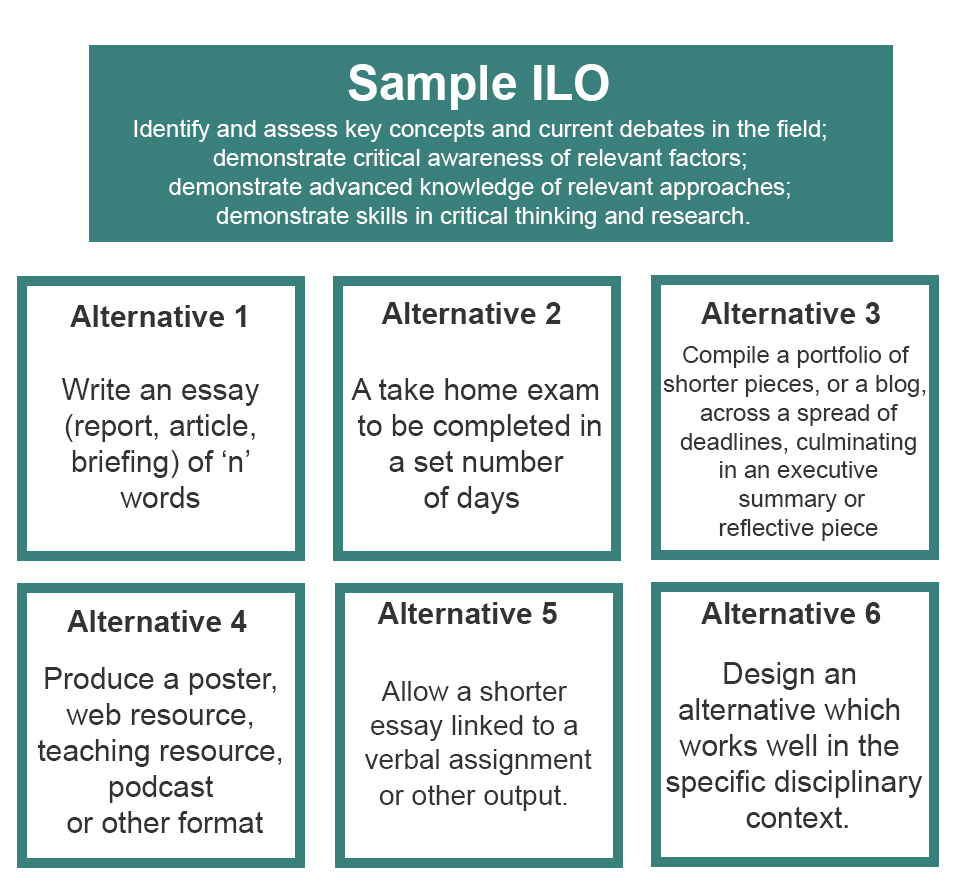Coursework-type assessments

Commentary: Written outputs challenge students to research a topic, explore and articulate arguments and demonstrate their ability to scope tasks, assimilate knowledge and develop conclusions and solutions. With suitable mitigations where required, they are generally accessible to most students. Written outputs are an authentic way of judging academic and intellectual development, and are also authentic artefacts in some disciplines where they represent effective training for skills required in the workplace. However, across a programme, and a teaching block, a variety of assessment types will support students to develop a wider range of skills and to manage their time. This may be particularly valuable in enabling students to juggle assessment volumes with their other commitments. Combining a written output with another form of assessment may also mitigate academic integrity issues.
Supporting students: Consider the overall length of written assessment, for individual assessments and cumulatively across a teaching block and programme. Increasing word length is not always a marker of greater intellectual depth. Shorter assignments can be just as intellectually challenging but enable students to manage workloads more effectively, and staff to manage marking time.
References and further advice:
- Kay Sambell, Sally Brown, Phil Race, Heriot Watt University, ‘Alternatives to Essays’: https://lta.hw.ac.uk/wp-content/uploads/GUIDE-NO6_Alternatives-to-essays.pdf
J. Mandernach, University of Wisconsin, ‘Alternatives to Essays’: https://www3.uwsp.edu/citl/Documents/12TTT-Alternatives-to-Essays.pdf
